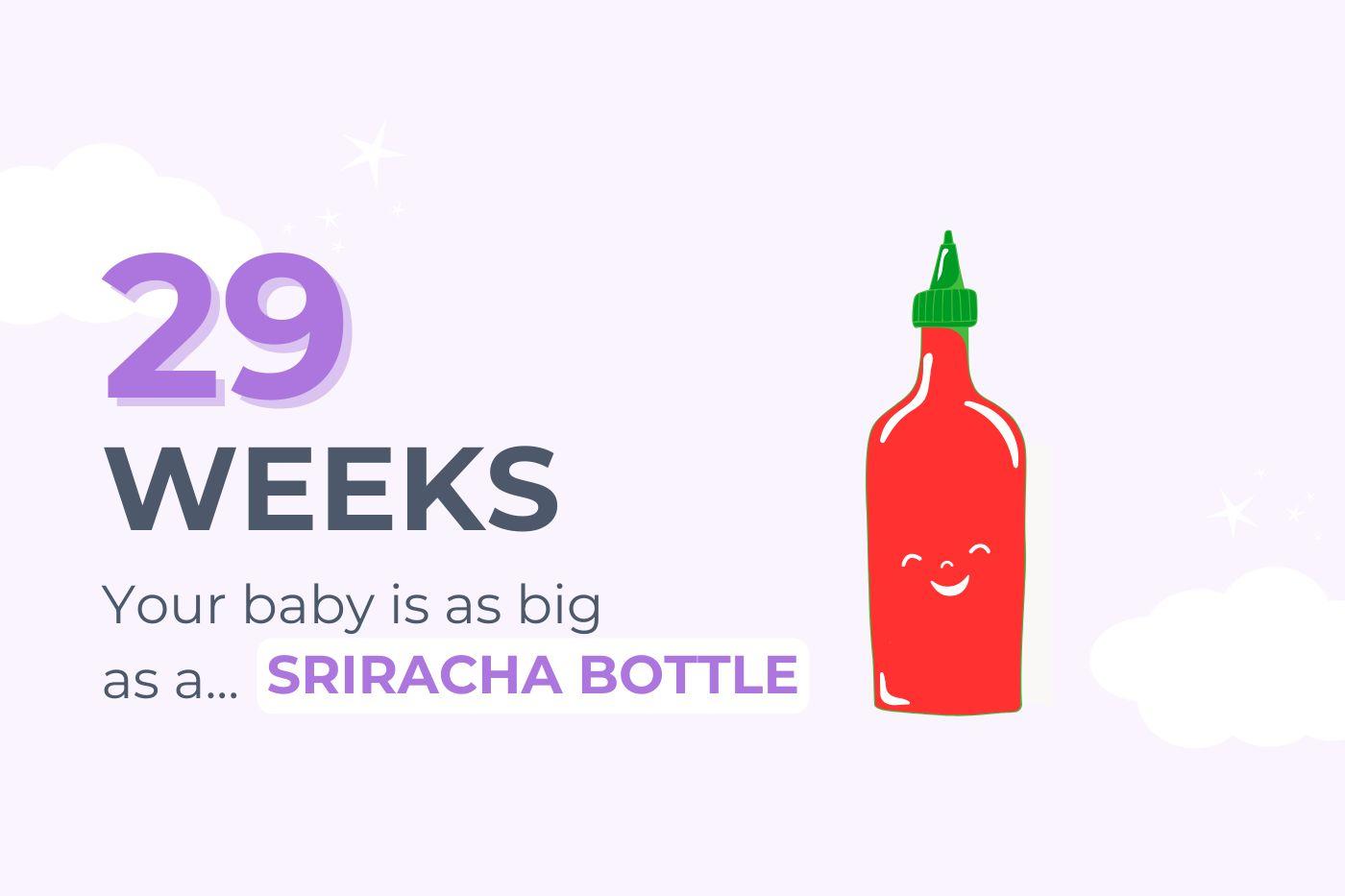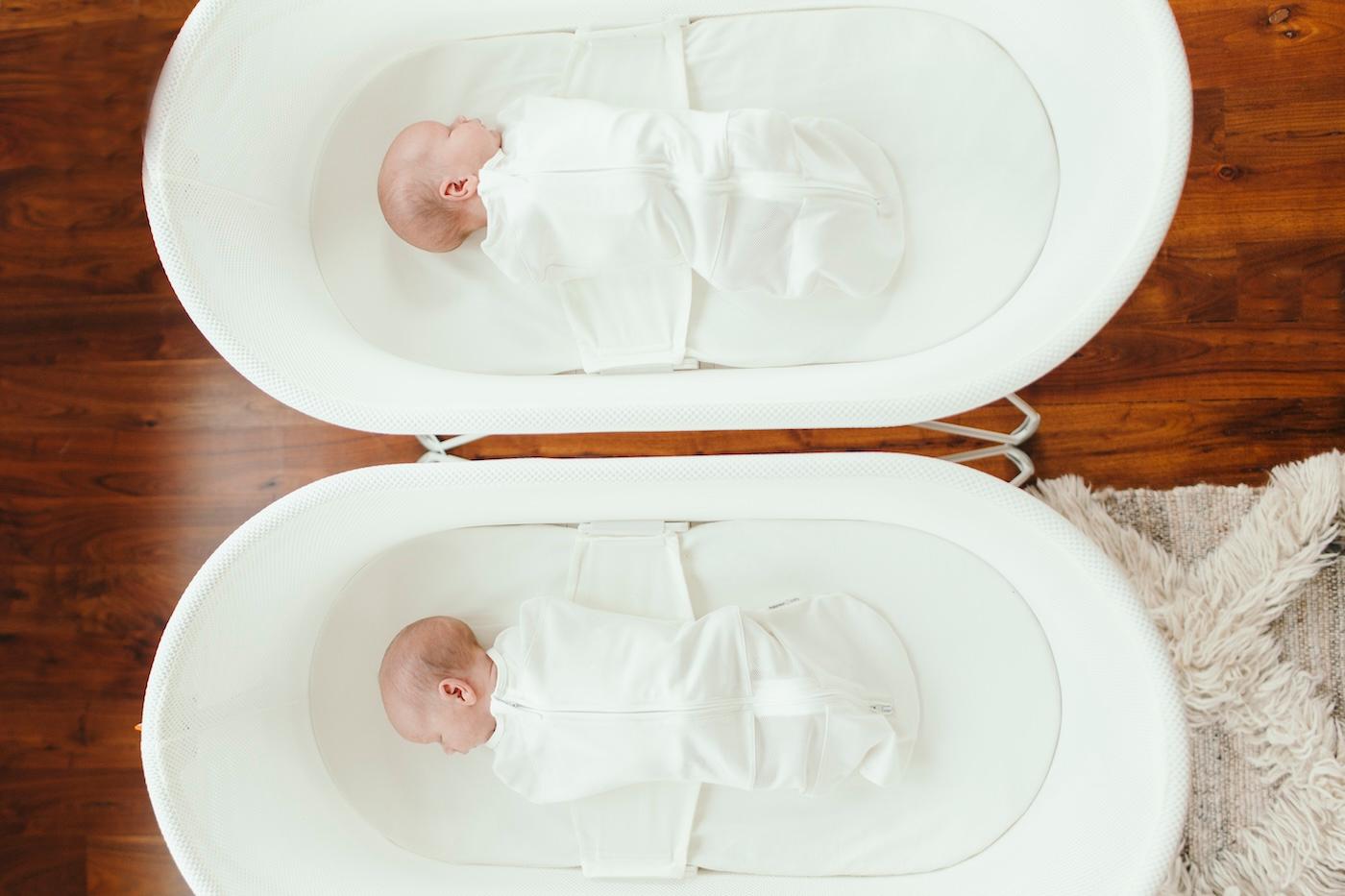PREGNANCY
29 Weeks Pregnant: Where'd I Leave My Keys?
Your baby's brain is developing neural connections!

Written by
Dr. Harvey Karp

Your Baby at 29 Weeks
Your baby now measures between 38 and 43 centimetres long and weighs about 1.1 to 1.8 kilograms. Their brain is busy building neural connections, their liver is turning out red blood cells, and their soft cartilage is continuing to harden into bone.
Size of Baby at 29 Weeks
Your little firecracker is about the size of a bottle of chilli sauce!
For the past few months, most of your baby’s growth has been in their vital organs—but now they’re also starting to put on fat. Those rounded cheeks you may see on a scan are just the beginning. By birth, your baby will likely have plump thighs and a squishy little belly. This extra padding is a vital energy store and helps keep them warm when they leave your cosy womb (which is about 37°C) for the outside world, where the air is 20 to 30 degrees cooler.
Some of that fat will be used to fuel their body and brain in the first few days after birth, before your milk fully comes in.
Your baby is also shedding their lanugo (the fine hair that covered their body). Some of this may be swallowed along with amniotic fluid and end up in their first sticky bowel movements—called meconium.
And those rhythmic little jolts you sometimes feel? That’s your baby’s diaphragm practising with hiccups—rehearsing for their very first breaths.
29 Weeks Is How Many Months Pregnant?
At 29 weeks, you’re about six months and one week pregnant.
29 Weeks Pregnant: What to Expect
If you feel occasional cramps in your bump, check in with your midwife or doctor—but don’t panic. These are most likely Braxton Hicks contractions, your womb’s way of “training” for labour.
Like your baby’s hiccups, Braxton Hicks are practice runs. Not everyone feels them, but they’re common and may be triggered by dehydration—so try having a big glass of water and a rest to see if they settle.
A quick rule of thumb:
- Braxton Hicks ease up if you change position.
- Real contractions get stronger and more regular over time.
Still, always contact your care provider if you’re unsure.
On top of Braxton Hicks, frequent trips to the loo, back strain, and swollen hands or feet, you may notice a touch of pregnancy brain. Forgetfulness and spaciness are often down to sleep disruption and hormone surges. While there’s no cure, writing things down and getting extra rest can help you feel a bit more in control.
29 Weeks Pregnant Symptoms
Some common symptoms include:
- Itchy bump
- Dizziness or lightheadedness
- Pain in the legs, hips, or back
- Haemorrhoids
- Constipation
- Difficulty sleeping
- Frequent urination
29 Weeks Pregnant To-Do List
- Install carbon monoxide alarms: Fit alarms on every level of your home, ideally near bedrooms. Babies are especially vulnerable to carbon monoxide. Check existing alarms regularly and keep spare batteries handy.
- Get your car seat sorted: Buy a new car seat and make sure it’s properly installed. Many hospitals, midwives, and community safety groups in the UK and Australia offer car seat safety checks—well worth taking advantage of, since many parents unknowingly install them incorrectly.
- Plan for “what ifs”: Most births go smoothly, but newborn health concerns can crop up. Ask your midwife which hospitals are best equipped for neonatal care, even if you’re planning a home birth or birth centre delivery.
- Decide on nappies: Disposables are the most common choice, but they do create a lot of waste. Cloth nappies are a reusable alternative—though they require more washing. Many parents find a mix works best: eco-friendly disposables for the early weeks (when newborns wee and poo constantly), then switching to mostly cloth later on.
Pregnancy Quote of the Week
“Life is always a rich and steady time when you are waiting for something to happen or to hatch.” — E.B. White
Disclaimer: The information on our site is NOT medical advice for any specific person or condition. It is only meant as general information. If you have any medical questions and concerns about your child or yourself, please contact your health provider. Breastmilk is the best source of nutrition for babies. It is important that, in preparation for and during breastfeeding, mothers eat a healthy, balanced diet. Combined breast- and bottle-feeding in the first weeks of life may reduce the supply of a mother's breastmilk and reversing the decision not to breastfeed is difficult. If you do decide to use infant formula, you should follow instructions carefully.
SHARE THIS ARTICLE
PARENT PICKS
Bestsellers



















